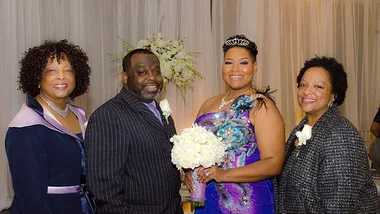WE’RE talking about Anne Slaughter’s 2012 Atlantic piece, Why Women Still Can’t Have It All (though the question was asked long before Slaughter’s bone jarring piece hit the dinner party circuit). The effects of Slaughter’s piece are still felt whenever a woman is asked how she manages both a career and family. Or perhaps she only has a career and is a subject of pity. Or maybe she’s “Leaning in”, or opting out, or declares herself to be a hashtag #girlboss.
The generally agreed-upon party line now hovers around ‘you can’t have it all, or at least not at the same time’. We tired of the so-called ‘mummy wars’ and the why you can or can’t have-it-all-isms. Yet whenever a woman says something definitive or tries to have it all and comes up short, we’re back on that can you/can’t you train again. Like when Pepsi CEO Indra Nooyi said that no, women can’t have it all at an ideas festival in Aspen earlier in July this year,
“I don’t think women can have it all. I just don’t think so. We pretend we have it all. We pretend we can have it all. My husband and I have been married for 34 years. And we have two daughters. And every day you have to make a decision about whether you are going to be a wife or a mother, in fact many times during the day you have to make those decisions. And you have to co-opt a lot of people to help you. We co-opted our families to help us. We plan our lives meticulously so we can be decent parents. But if you ask our daughters, I’m not sure they will say that I’ve been a good mom. I’m not sure. And I try all kinds of coping mechanisms,” Nooyi said, with impressive candour.
And just when we thought there might be a moratorium on the topic, it’s popped up again with new research from the Harvard Business Review (HBR). Though this time it’s telling a slightly different story – and it’s worth taking note.
Much has been made of the study because it questions the reasons why women might not meet the same lofty career ambitions as men. There’s that pesky baby question, and the knotty old stereotype of women as the nurturers, the flexi-time seekers, the school lunch makers.
Another recent study of gifted students found that men and women value success differently. The rather more interesting correlation unearthed in that study, however, lies in the way both genders think about their families.
As the study notes, “[The] notable consensus from the study participants was how their feelings of success were tied to the fulfilment they got from family.”
This ties in with the HBR research. The study surveyed 25, 000 MBA graduates from the Harvard Business School over three generations. While they found the usual sore points of women not attaining the same kinds of success as men, they found no link with women taking time out from their careers for their families.
“Women were more likely than men to have made such decisions,” [surrounding child rearing] the authors of the study wrote, “but again, none of these factors explained the gender gap in senior management. In fact, both men and women in top management teams were typically more likely than those lower down in the hierarchy to have made career decisions to accommodate family responsibilities.”
So if both men and women are trying to have it all, why do only women get pilloried for it? Is it because of conditioning, or cultural values, or perhaps because it’s easier that way?
As Lisa Miller wrote in The Cut, “Why is it that we, as a culture, have been so quick to latch on to the narrative that women are failing to achieve true equality because they essentially take themselves out of the running for the top jobs? “
Women are blamed for trying – and failing – to have it all because it’s an easy trope to believe. Especially when thinking otherwise involves changing the way we think about corporate culture, and opportunities for women and things like (whispers) quotas of women on boards and senior management.
Facebook CEO Sheryl Sandberg has many of us leaning into our careers so far we’re practically cross-eyed, but as the authors of the study noted, it’s time for companies to lean in too.
“Companies need to provide adequate entry points to full-time work for women who have, for instance, recently been on a part-time schedule or taken a career break,” they wrote.
“Our results make equally clear that companies need to move beyond regarding flextime and other “family-friendly” policies as sufficient for retaining and developing high-potential women. Women are leaning in … Women want more meaningful work, more challenging assignments, and more opportunities for career growth.”
That also doesn’t mean that women – and men – shouldn’t ever stop trying to “have it all” but maybe that term should finally be put to rest (please). It’s not about having it all, it’s about having enough of the other things.
As one of Australia’s most successful businesswomen, the outgoing Westpac CEO Gail Kelly said in a speech before her departure, one of her most important pieces of advice that she give to people is to live a whole life.
“You need to make sure you live a whole life, which means be really clear on the priorities in your life and invest in them all the way,” she said.
A whole life will always mean different things for different people. As the wonderful Amy Poehler noted in her memoir Yes Please, a worthy mantra to live by is “good for her, not for me.” Of course, that goes for the men too.
They’re fighting words.

































